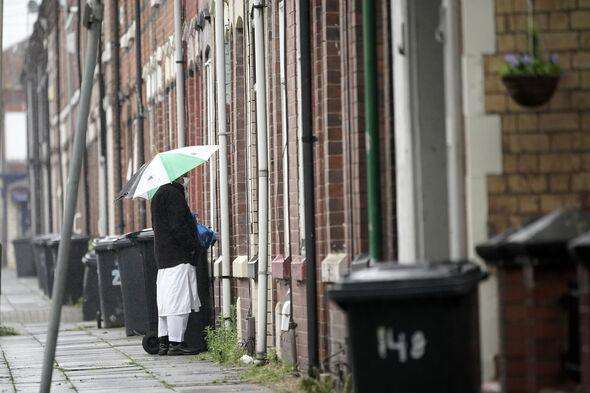The UK property market is currently experiencing a profound stagnation, a phenomenon described by industry insiders as "dead." While house prices have shown modest growth, with the average UK property valued at £270,000 as of July 2025, the real story lies in the dramatic decline in transaction volumes. A combination of political uncertainty, a heavy-handed tax regime, and the lingering effects of the cost of living crisis has created a climate of "paralysis," where both buyers and sellers are hesitant to make a move.
A Market on Hold: The "Reeves Effect"
A significant contributor to the current market freeze is the raft of proposed property tax reforms, which, while not yet enacted, have created a sense of fear and anticipation. The proposals, particularly those reportedly from Rachel Reeves's camp, have led to a "whole load of kites" being flown, as one property expert put it, leaving the market in a state of suspended animation. The most chilling of these proposals is the rumored tax on vendors of homes worth over £500,000. While the government has denied this specific plan, the mere suggestion of such a tax has a powerful deterrent effect. For families who have invested their life savings into their homes, this represents a potential penalty for success. As one expert highlighted, "£500,000 doesn't make you rich," and the prospect of being "punished" for a home's appreciation is a major reason for sellers to stay put. This political rhetoric has already had a tangible impact, with one estate agent reporting that nearly 20% of agreed sales in August fell through, and new instructions to sell are down 3% year-on-year.
Transaction Taxes: A Barrier to Mobility
The UK's existing "transaction taxes," such as Stamp Duty Land Tax (SDLT), are also a major factor in the market's immobility. Despite recent changes, the cost of moving remains prohibitively high for many. For example, a family upsizing to a £650,000 home faces an SDLT bill of over £20,000. This substantial cost acts as a disincentive, trapping people in homes that no longer suit their needs. The recent policy change that ended the first-time buyer discount on properties over £300,000 has been particularly criticized, especially in regions like London and the South, where the average price of a home exceeds this threshold. Furthermore, the 5% Stamp Duty surcharge on second homes has created "huge issues" for people with legitimate needs for a second property, such as those with split families or work-related relocations.
Stalled Development and Leasehold Woes
Beyond taxes, the market is also grappling with other systemic issues. Housebuilding has stalled significantly, with London building only 5% of its 2025 target of 88,000 new homes. This supply-side issue, combined with a decline in new sales listings, has kept prices from falling dramatically but also means there are fewer options available for buyers. The issue of leasehold reform adds another layer of complexity. While the government's Leasehold and Freehold Reform Act of 2024 has banned new leasehold flats, it does not address the problems faced by the almost five million existing leaseholders. Experts argue for "nuanced reform" rather than abolition, citing the need to balance the protection of leaseholders with the role of responsible freeholders. However, the ongoing public debate and political "heat" surrounding the issue have created a "never buy leasehold" attitude that is trapping people in their properties.
Will It Get Better?
The immediate outlook for the UK property market is one of continued uncertainty. The market is not "dead" in the sense that prices are plummeting, but rather that activity has ground to a halt. While mortgage approvals were up 5% in July 2025 compared to a year ago, they remain subdued compared to previous years. Property sales now take an average of 115 days to complete, a 25% increase over four years, underscoring the friction in the system.
The future of the market is heavily dependent on political decisions. A clear and stable policy on property taxation is essential to restore confidence and get the market moving again. While some experts forecast a stronger rebound in 2026, with an expected growth of around 3%, this is contingent on factors such as a more favorable political environment and a potential decline in mortgage rates. Until then, the UK property market is likely to remain in a state of watchful waiting.
_4.jpg)

_4.jpg)





.svg)

_4.jpg)

